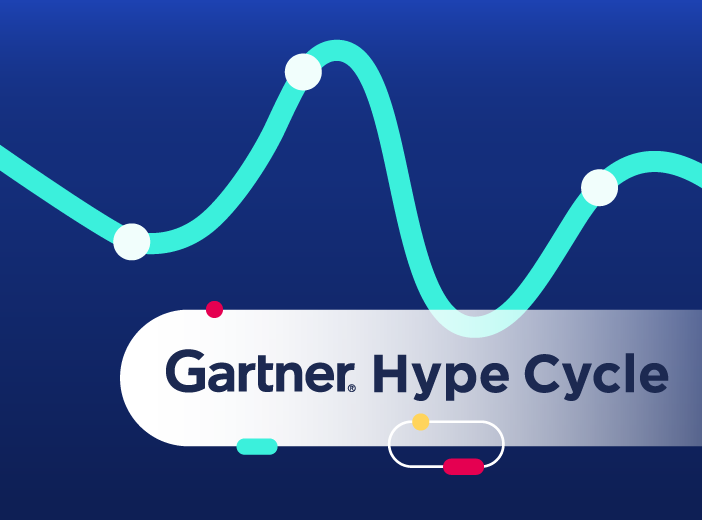Glossary
Data literacy
Data literacy is the ability to read, understand, work with, analyze and communicate with data, turning it into meaningful, relevant information.
What is data literacy?
Data literacy is the ability to read, understand, work with, analyze and communicate with data. Essentially it allows people, whether employees, consumers or citizens, to derive meaningful information from data in both their jobs and daily lives.
It is a discipline essential to the democratization of data that aims to understand phenomena and behaviors with a critical mind based on the data.
What are the characteristics of data literacy?
There are four key characteristics of data literacy:
- The ability to read data, understanding it in context and what it represents
- The ability to work with data, including creating, acquiring, cleaning, and managing it.
- The ability to analyze data, carrying out a range of analysis methods to question it, dependent on the context.
- The ability to communicate/argue using data to support a larger narrative or decision to a particular audience.
Data literacy skills include these abilities:
- Understanding what data is appropriate to use for a particular purpose.
- Being able to read data visualizations, such as graphs and charts.
- Thinking critically about information yielded by data analysis.
- Knowing a range of methods for analyzing data, and being able to apply the most appropriate one for a particular use case.
- Having the ability to recognize when data is being used misleadingly or incorrectly.
- Being able to communicate information about data to different audiences in ways that they will understand, including those without data literacy skills.
Why is it important?
We live in a world powered by data – Gartner calls information “the second language of business”. And data doesn’t just impact working lives, but the whole of society, from governmental decisions to how people are treated as consumers.
It is therefore crucial for everyone to be able to work and live effectively in today’s society. In the same way as not being able to read or write alienates and marginalizes people, not being able to understand, analyze, and use data prevents citizens from contributing fully to society. Ultimately this can lead to isolation and a breakdown of belief in government organizations and the democratic process. The range and volume of data is ever-increasing, making a lack of data literacy a growing concern.
What are the benefits of greater data literacy?
Improving it delivers 5 benefits to businesses, employees, and citizens:
- Enables data-driven organizations: 35% of Chief Data Officers interviewed by Gartner list a lack of data literacy as a top 3 roadblock to data success.
- Faster, more informed decision-making: Being able to understand and analyze data enables employees and citizens to make quicker, more confident and better decisions.
- Creates a data culture: Data literacy is an essential part of creating a data culture within the organization and wider society.
- Greater productivity and confidence: Research shows that data literate employees are more productive, motivated, and confident when carrying out tasks.
- Supports digitization: Data literate employees and citizens are more able and happier to adopt new digital technology in both their work and home lives.
How can you improve it?
Improving it is vital to success, yet just 21% of employees are confident in their data literacy skills according to research from Accenture. This is due to a combination of factors, such as cultural pushback, fear of change, poor data governance, silo-based working and people’s worries about learning new skills.
Training and culture change are therefore central to improving data literacy, following a 8 step process. This can be adapted and applied by both enterprise and public sector organizations:
1. Define your goals for data literacy. What are the objectives and how will they be measured?
2. Assess current skills. Where are their particular gaps and areas of strength? Bear in mind that different roles require varying levels of data literacy – a data scientist or data analyst will clearly need deeper skills than a business user of data or a citizen.
3. Identify champions with higher levels of data literacy. These could be super-users in individual business units.
4. Create a common language for describing data. Ensure that everyone understands how data is described across the organization and beyond.
5. Identify areas where improving data literacy will drive immediate benefits. This could be helping employees in a particular business unit to make better decisions, or empowering citizens, for example. It is important that these areas are relevant to users and show the clear benefits improved data literacy will bring.
6. Run training sessions, led by data champions and tailored to the specific needs of users/departments
7. Empower users with the right tools to enable them to use data effectively within their daily working lives.
8. Measure effectiveness against goals and objectives. Repeat training as required.
Learn more

Blog
Gartner Hype Cycle: How data marketplace technologies are transforming data management
Where should CDOs and data leaders focus their strategies and investments when it comes to technology? To help, we highlight key trends from the new Gartner Hype Cycle for Data Management, focusing on the benefits of data marketplaces and data products.

Blog
Opendatasoft harnesses agentic AI to connect AI models to real-world data, driving greater business impact
What is agentic AI and how does it help increase data consumption? Our Q&A blog explains the current state of AI, and how Opendatasoft is innovating to drive forward its impact for customers.

